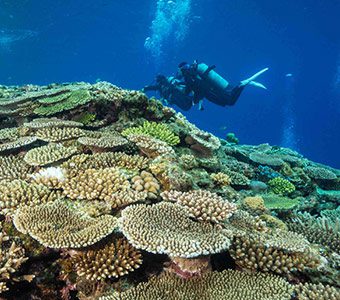This week, the Australian Geographic Society’s Young Conservationist of the Year award was bestowed on Madison Stewart, better known as ‘Shark Girl’, for her work trying to save the oceans’ most misunderstood creatures: sharks.
Madison has been campaigning for shark conservation since she was 14 years old, when she first noticed their dwindling numbers while diving on the Great Barrier Reef. Over the years she has lobbied government to shut down shark fisheries, appealed to supermarkets to stop selling shark products, but perhaps her most powerful conservation efforts are the stories she tells through the medium of film, her efforts to show people just how majestic these creatures are, and why need to be saved.
We spoke with Madison about her tireless efforts to save sharks, her passion for all things aquatic, and about her role, alongside veteran marine conservationist Valerie Taylor, in the new documentary, Blue, which explores the host of threats to our world’s oceans.
When did your passion for everything marine-related start?
It was always there. My dad has always been passionate about the ocean, but he wasn’t the sort of person to try and force you to share his passions, I just did. I can’t remember a single time when I fell in love with the ocean, it’s just always been a part of it, but my passion for conservation didn’t start until I was 14 years old.
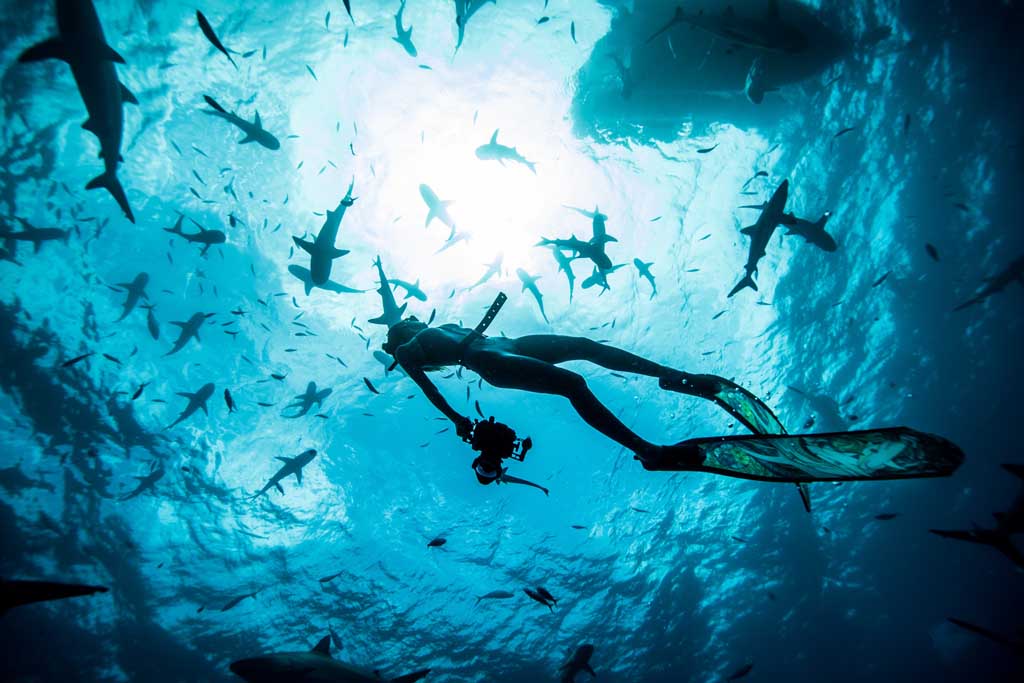
And what prompted your passion for conservation?
That was prompted by a single dive on the Great Barrier Reef. It was a spot that I had frequented as a child and it was one of my favourite dives because I could hang out with a bunch of grey reef sharks.
I had just finished school, I had my new underwater video camera and was stoked to come back and film them and… there were none there.
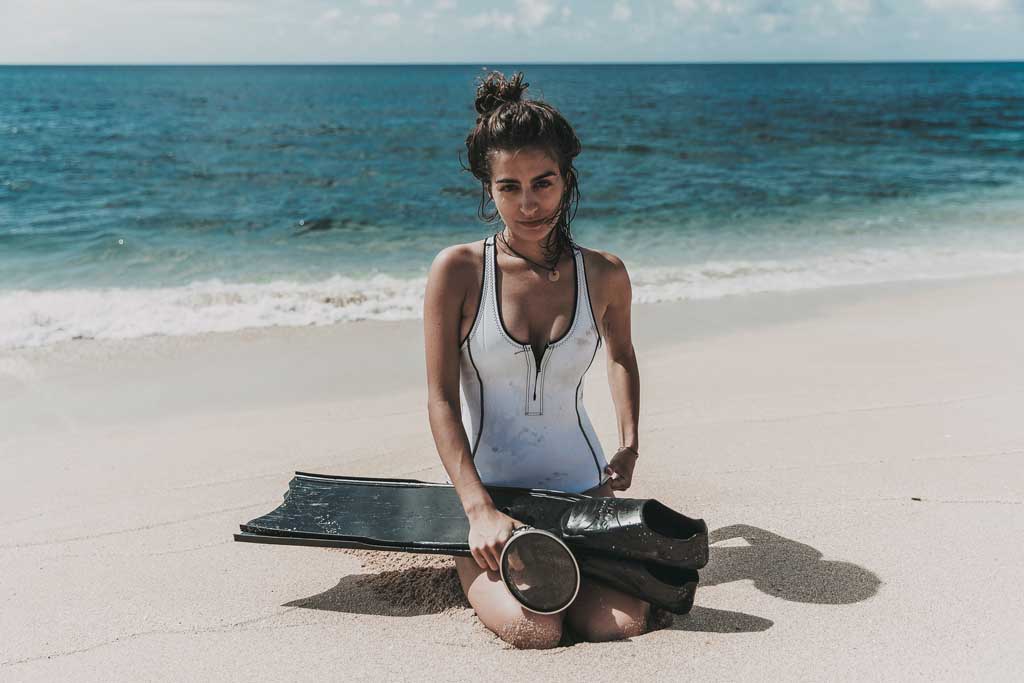
It was a pivotal moment for me where I went from, “I love the ocean, I’m going to enjoy it, grow up and become a marine biologist” to “I’m going to be a law-breaking activist traveling around the world trying to save sharks”.
What do you think caused this exodus?
I don’t like to make assumptions but I think I can safely say it had something to do with the East Coast Fin Fishery, which is the shark fishery inside the Great Barrier Reef, and that became my focus for a really long time. It’s the first fishery I campaigned against, and that’s where it all kicked off really.
And how did it “kick-off”?
Well, it began with my underwater camera. I was just going to get out there, make shark documentaries and change the world. I thought it was going to be easy and that people would care about what I had to say and I could change government policies. I was just so hopeful until the world crushed my spirit into a million pieces.
I made my first DVD when I was 14, sent it to Peter Garrett with a letter saying, please don’t renew the shark fishery, thinking that would work, but it didn’t. I didn’t even get a response and the fishery was renewed for another four years.
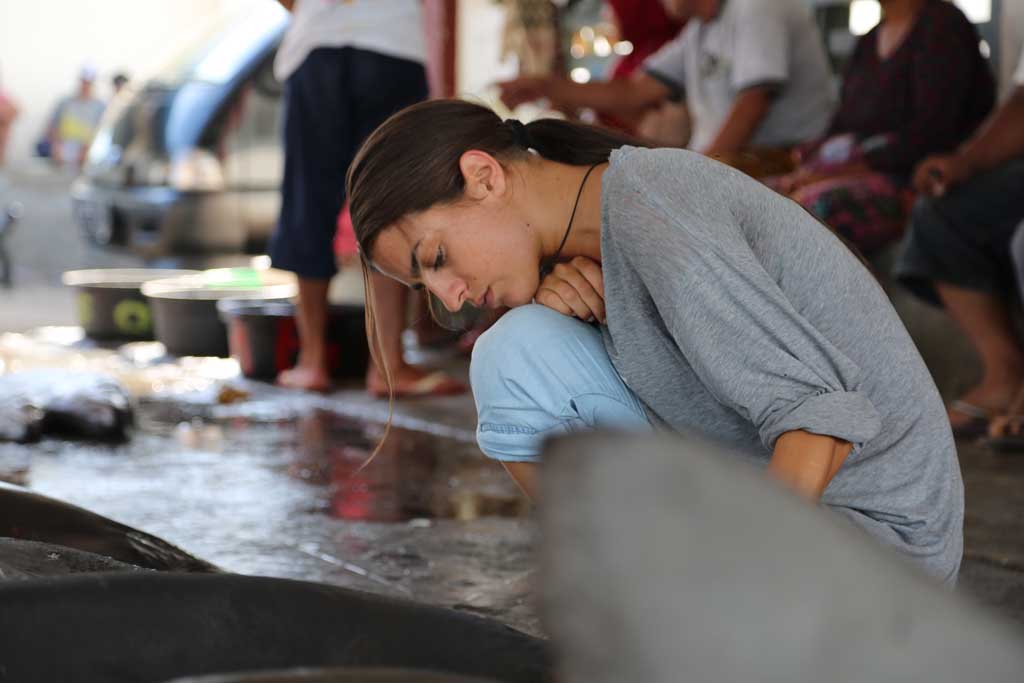
So, after that I began to look into it in more depth. I teamed up with researchers and law students and developed some pretty good papers to argue my case.
But after trying to tear apart policies, lobbying the government – I collected 2500 signatures and sent them through to the Department of Fisheries and all I got for that effort was an acknowledgment letter. I realized they hadn’t even bothered to read them. And nothing changed.
I realized that I was never going to be able to change governments or change laws, so instead, I’m going to make people really mad about it.
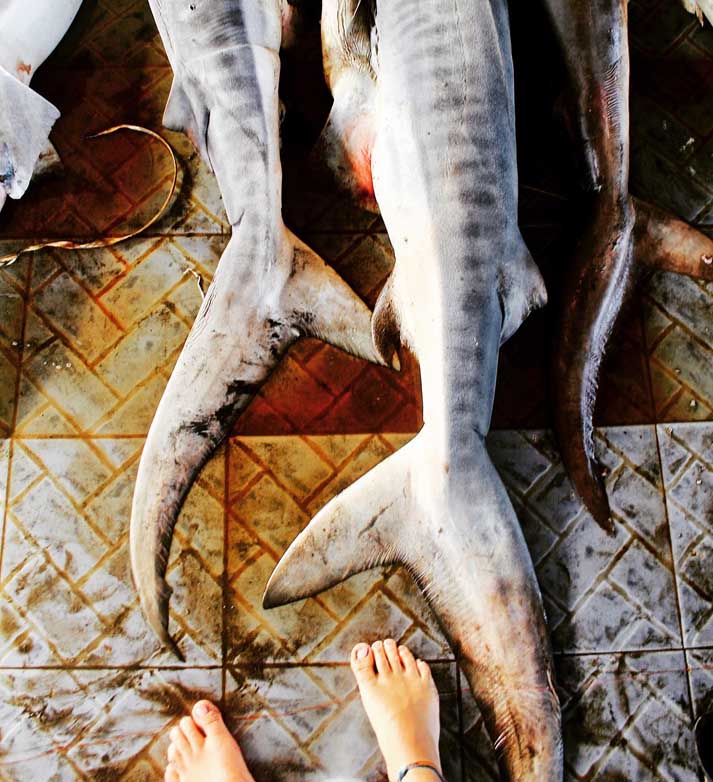
After that I just made film after film, and then, someone noticed me. A film production company saw one of my films on YouTube, Man Eating Shark, and they approached me to make a documentary about me. That was Shark Girl.
And what are you focussing your efforts on right now?
In Blue, they feature a little town in Lombok, Indonesia where there is a huge shark fishery, and I want to go back and work with the fishermen to develop a tourism industry to replace the shark fishery. I really want to shift the poverty line in that community and steer them away from fishing.
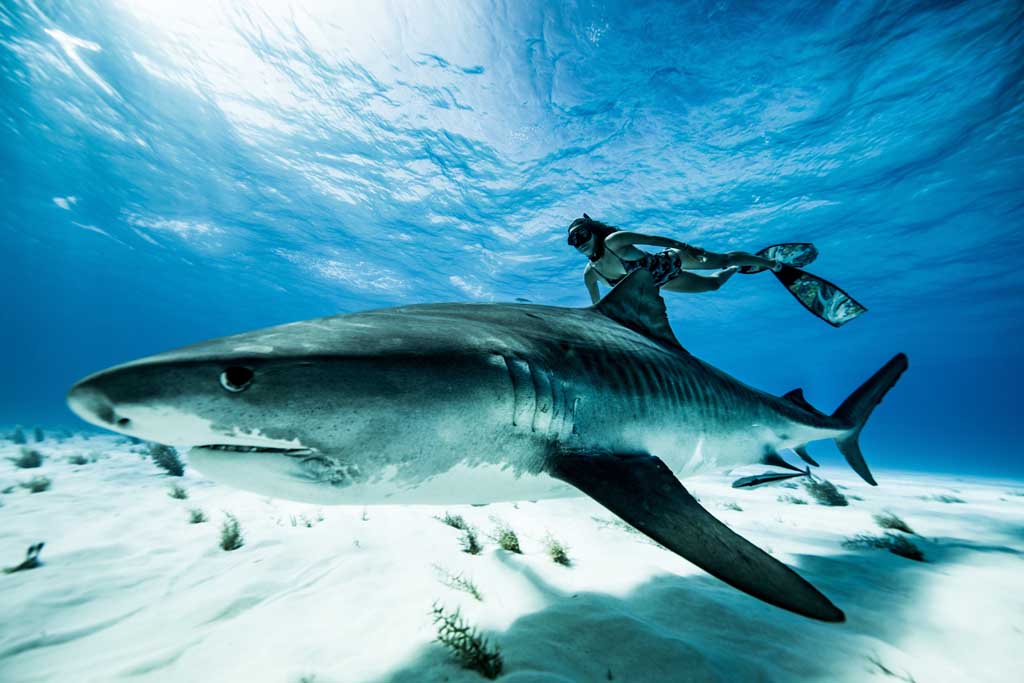
So, would you agree that tourism is good for the environment?
Absolutely. And this is what I try and tell conservationists when they attack these people telling them they must simply just stop what they’re doing. It’s not that simple.
You can’t change these fishermen’s minds by taking their occupation away from them, they still need to feed their families.
So, a cooperative approach is a way to go?
Yes, which I never was when I was younger, I was just angry that they were killing all my sharks, but then I realized that wasn’t changing anything.
If we give these villagers double the money they earn from the fishery, in this case only AU$300 per week, to provide transfers for snorkelers, divers or surfers, they’d be making more money, be able to spend more time with their families, and no longer reliant on the shark fin trade.
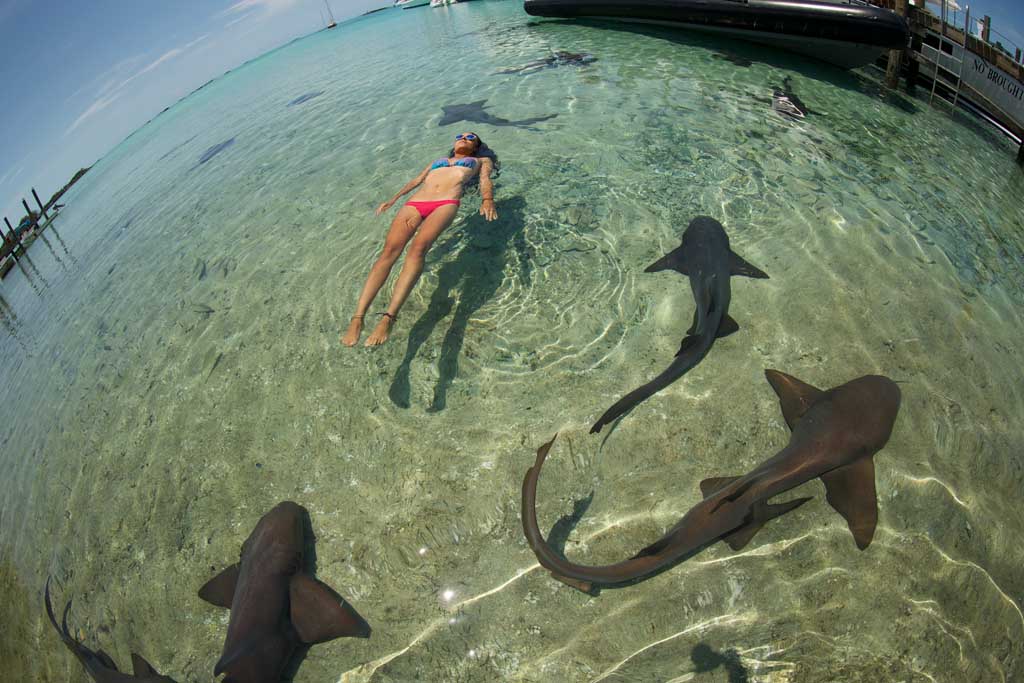
I also try and tell people in my films, whether I’m in Indonesia or Mexico, that, yes, this is sad, but you’re buying the result of this fishery.
These third-world fisheries exist to feed the greed of the first world.
Shark cartilage from endangered species has been found in things like joint supplements for pets.
And what does the Australian Geographic Society award mean to you?
More than anything, it’s been uplifting. It’s wonderful to be recognized for what you do when you spend all your time filming dead sharks and screaming to be heard and nobody’s listening. So, it’s nice to have someone pat you on the back and say “well done!” So, it means a lot to me, personally.
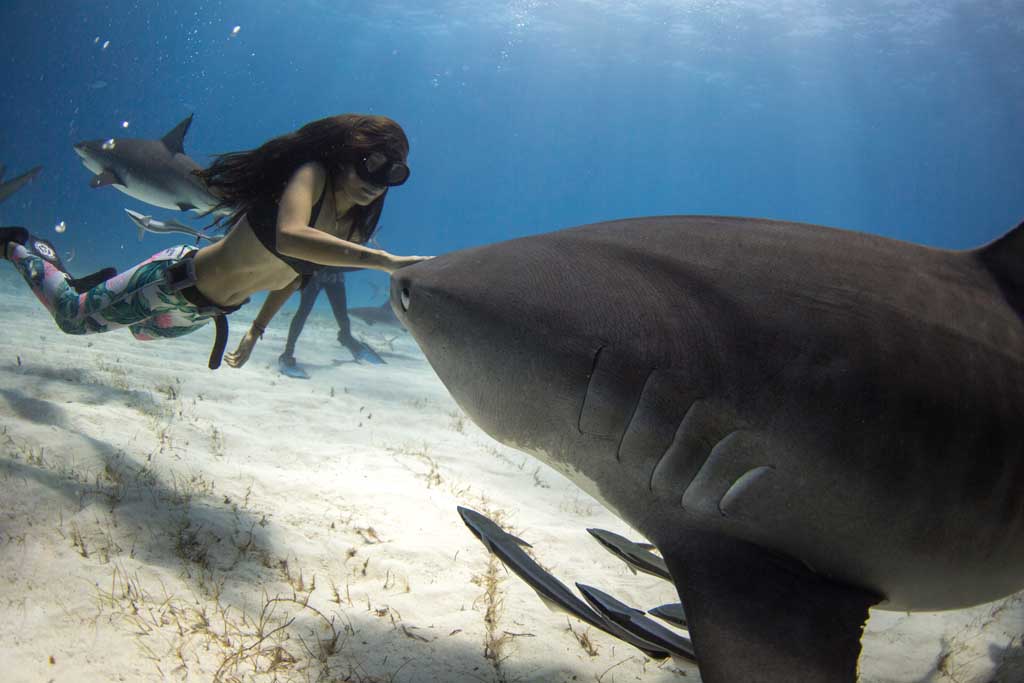
So, do you have hope?
No, I don’t. Because I don’t like that word.
Never think about whether you can actually fix it, whether it’s possible, just do it anyway! How could you want to live any other way than knowing you contributed to making things better?
Hope is a surrender. You shouldn’t have hope when you can actually do something about it.
Do you think you’re changing peoples’ minds?
I think so. Definitely. If you’d asked me when I was 14, can one person make a difference, I would have said no. I would never have guessed where I am today.
Madison is currently helping to complete Rob Stewart’s sequel to Sharkwater. Watch this space for updates!
If you liked this article, you may also like:
- The Story of Fluffy – the rescue of a great white shark
- Sharkwater’s Rob Stewart, an ocean hero lost
- Best Places to dive with Grey Nurse Sharks in NSW


